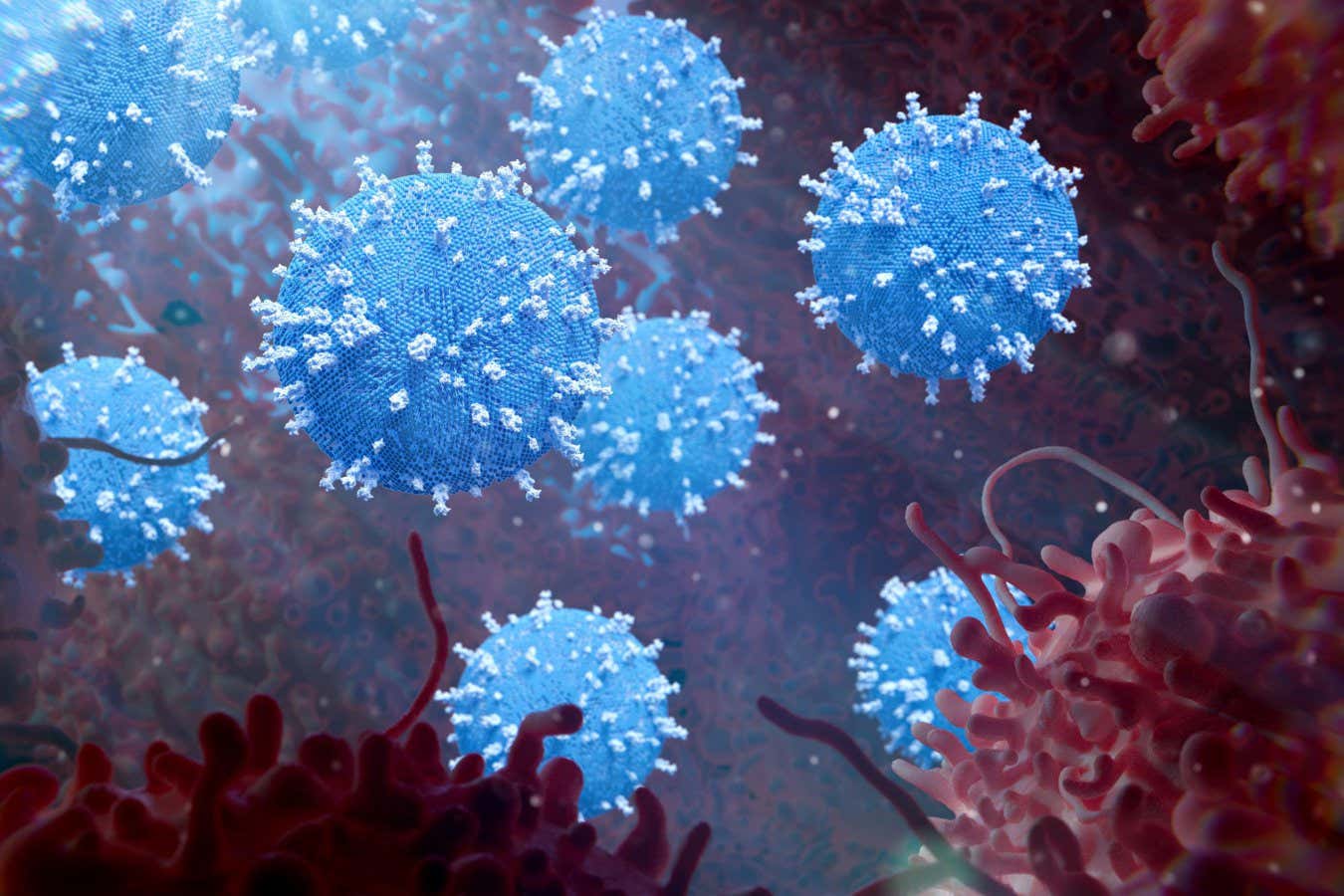Virus-based treatments are already approved to treat several types of cancer, and combining them with bacteria could make them even more effective
By Carissa Wong
15 August 2025
The herpes virus can help treat severe skin cancer
Science Photo Library/Alamy
Viruses have shown huge potential in treating various kinds of cancer, but the immune response has limited their application to tumours near the body’s surface. Now, scientists have demonstrated that shielding viruses with genetically engineered bacteria bypasses this issue, slowing the growth of severe tumours in mice.
A few therapies that use cancer-killing, or oncolytic, viruses have been approved worldwide to treat cancers of the skin, brain and head and neck. These involve injecting the genetically engineered viruses directly into tumours, where they infect and kill cancer cells by bursting them apart.
Read more
We are finally improving prostate cancer diagnoses – here's how
But for harder-to-reach tumours deeper within the body, such viruses must be injected into the blood, where the immune system quickly destroys them before they get to the intended target.
To get around this hurdle, Zakary Singer at Columbia University in New York and his colleagues have made use of Salmonella typhimurium bacteria that have been genetically engineered to be harmless and provoke a weaker immune response than oncolytic viruses. They further engineered the bacteria to carry the genome of Senecavirus A, a virus which has been shown to kill human cancer cells in lab and animal experiments.
“We’re talking about a Trojan horse approach, where the bacteria hide this virus [from the immune system], shuttle it where it needs to go and then deliver it so it can do its cancer-killing business,” says Singer. The bacteria are engineered to enter cancer cells and then release copies of the viral genome, he says.
